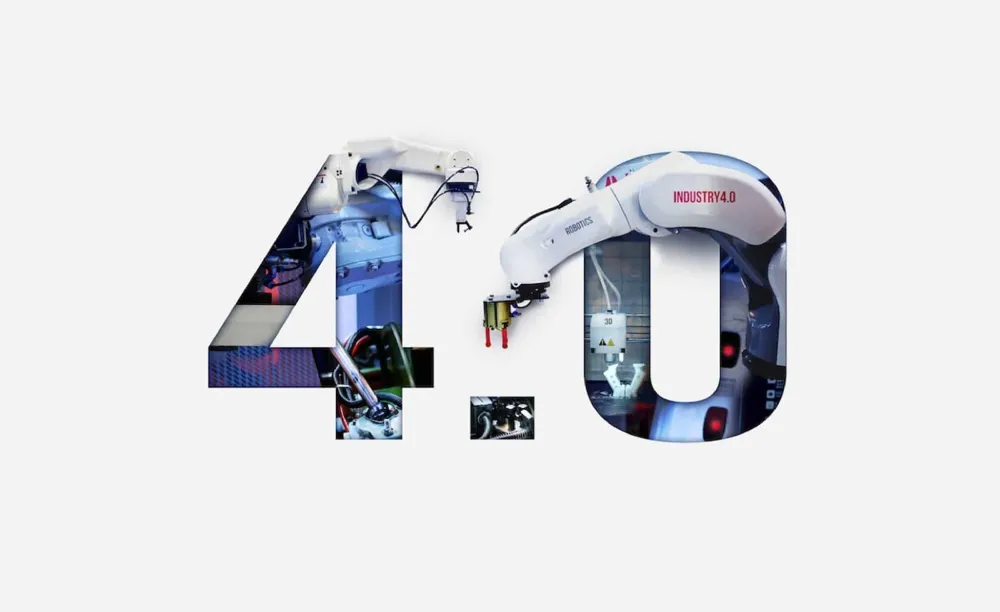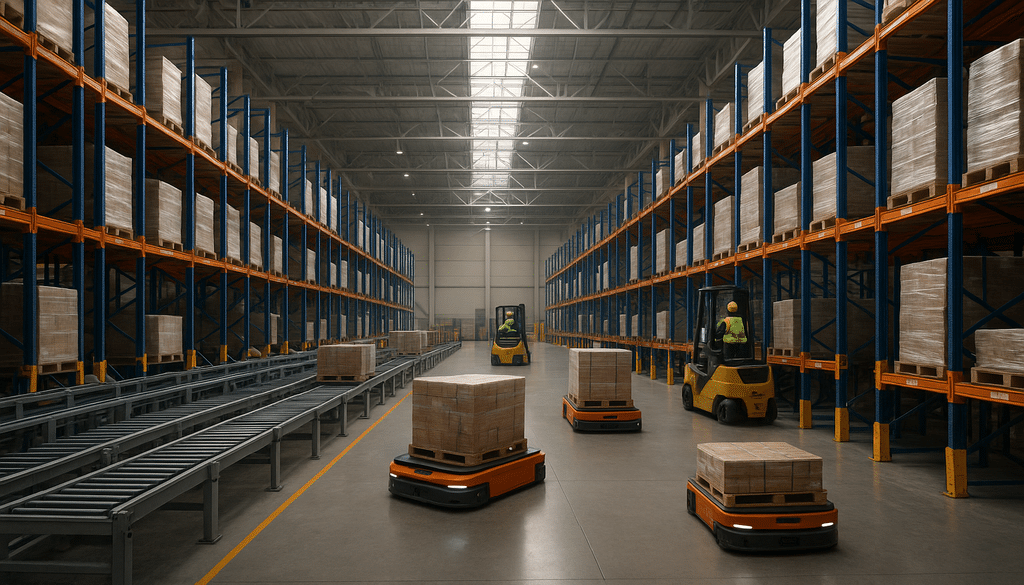Discover how Industry 4.0 technologies are revolutionizing the manufacturing landscape.
In today’s rapidly evolving technological landscape, companies are increasingly embracing Industry 4.0 to revolutionize their manufacturing processes. This article examines the various ways in which businesses are leveraging Industry 4.0 technologies to stay competitive and thrive in the modern world.
Understanding Industry 4.0 and Its Impact on Manufacturing
Before delving into specific examples, it is important to have a clear understanding of what Industry 4.0 entails and its crucial role in modern manufacturing.
Industry 4.0 represents a significant shift in the manufacturing landscape, driven by the convergence of digital technologies and physical processes. This paradigm shift is revolutionizing traditional manufacturing methods and paving the way for a more connected and intelligent industry ecosystem.
Embracing Industry 4.0 requires a holistic approach that goes beyond mere automation. It involves the seamless integration of cyber-physical systems, the Internet of Things (IoT), cloud computing, and eventually, artificial intelligence (AI) to create smart factories that can adapt and evolve in real-time.
Defining Industry 4.0: The Fourth Industrial Revolution
Industry 4.0, also known as the Fourth Industrial Revolution, refers to the integration of advanced technologies into the manufacturing sector. It encompasses the digitization and automation of processes, as well as the utilization of intelligent systems.
The Role of Industry 4.0 in Modern Manufacturing
Industry 4.0 has the potential to transform manufacturing by optimizing efficiency, improving quality control, and enhancing supply chain management. By leveraging key technologies, companies can unlock numerous benefits.
Key Technologies Driving Industry 4.0
Internet of Things (IoT) in Manufacturing
The Internet of Things (IoT) plays a fundamental role in Industry 4.0 by connecting machines, systems, and products. This interconnected network allows for seamless communication and collaboration between various components in a manufacturing environment. By enabling real-time monitoring, data collection, and analysis, IoT facilitates predictive maintenance, reduced downtime, and enhanced productivity. For example, sensors embedded in machines can transmit data to centralized systems, triggering alerts for maintenance before a breakdown occurs, thus optimizing operational efficiency.
Artificial Intelligence and Machine Learning
Artificial Intelligence (AI) and Machine Learning (ML) are poised to revolutionize the manufacturing sector by introducing advanced capabilities for data processing and decision-making. AI-powered systems will be able to analyze vast amounts of data in real-time, identifying patterns and anomalies that human operators may overlook. This analytical prowess will enable predictive maintenance strategies, where potential equipment failures are anticipated and addressed proactively, minimizing disruptions to production. Moreover, AI will enhance quality control processes by detecting defects or deviations with high accuracy, ensuring that only products meeting stringent standards are released to the market.
Robotics and Automation
The integration of robotics and automation stands as a cornerstone of Industry 4.0, transforming traditional manufacturing processes with efficiency and precision. Robots equipped with advanced sensors and actuators can execute repetitive tasks with unparalleled accuracy and speed, surpassing human capabilities in certain domains. By automating routine operations, companies can achieve consistent output quality while reducing the risk of errors caused by human intervention.
Furthermore, automation fosters interconnectedness among different production stages, enabling seamless data exchange and synchronization between disparate systems. This interconnected workflow not only enhances operational efficiency but also paves the way for adaptive manufacturing, where production processes can be dynamically adjusted in response to changing demands or unforeseen circumstances.
Read more: Implementing Warehouse Automation: Guide To Strategies And Technologies

The Benefits of Embracing Industry 4.0
Increased Efficiency and Productivity
By leveraging Industry 4.0 technologies, companies can streamline their operations and achieve higher levels of efficiency and productivity. With real-time data analytics and automation, processes can be optimized, minimizing waste, and maximizing output. This optimization not only leads to cost savings but also allows businesses to reallocate resources to focus on innovation and growth strategies. Additionally, the implementation of smart sensors and connected devices in manufacturing processes can lead to predictive maintenance, reducing downtime and further enhancing productivity.
Enhanced Quality Control
Industry 4.0 technologies enable real-time quality monitoring, reducing the occurrence of defects and improving overall product quality. AI-powered systems will soon be able to detect anomalies, minimize errors, and facilitate continuous improvement. Moreover, the integration of augmented reality (AR) and virtual reality (VR) technologies in quality control processes will allow for more detailed inspections and precise defect identification, ensuring that only products meeting the highest standards reach the market.
Improved Supply Chain Management
Industry 4.0 facilitates end-to-end supply chain visibility, tracking products from raw materials to end-users. This transparency enables better inventory management, demand forecasting, and just-in-time delivery, ultimately reducing costs and enhancing customer satisfaction.
Furthermore, the use of blockchain technology in supply chain management could eventually help ensure data integrity and security, enabling seamless collaboration between multiple stakeholders while mitigating risks such as counterfeiting and unauthorized access. By embracing Industry 4.0 principles in supply chain management, companies can create agile and responsive networks that adapt to changing market dynamics with ease.
Challenges in Implementing Industry 4.0
Cybersecurity Concerns
As companies become increasingly reliant on interconnected systems and data, the risk of cyber threats also grows. Protecting sensitive information and ensuring the security of manufacturing processes are significant challenges that must be addressed when embracing Industry 4.0.
Need for Skilled Workforce
Industry 4.0 technologies call for a new set of skills. Companies must invest in training their workforce to effectively operate and maintain advanced systems. Upskilling employees and attracting talent with expertise in emerging technologies are vital to successful implementation.
High Initial Investment
Implementing Industry 4.0 technologies requires substantial financial investment. Upgrading existing infrastructure, purchasing new equipment, and training personnel can strain budgets. However, the long-term benefits and competitive advantage gained often outweigh the initial costs.
Another key challenge in implementing Industry 4.0 is the interoperability of various systems and technologies. Ensuring seamless communication and integration between different components such as sensors, machines, and software is crucial for achieving the full potential of a smart factory. Standardization efforts and compatibility testing play a vital role in overcoming this obstacle.
Furthermore, the concept of data privacy and governance is paramount in the era of Industry 4.0. With the massive amount of data generated by interconnected devices and systems, companies need robust policies and frameworks to safeguard data integrity and protect consumer privacy. Compliance with regulations such as GDPR and CCPA is essential to build trust with customers and stakeholders.
Empower Your Manufacturing with ASC Software’s Industry 4.0 Solutions
As the manufacturing landscape evolves with Industry 4.0, ASC Software is at the forefront, providing innovative solutions that integrate advanced technologies to optimize your operations. Our systems are designed to harness the power of an integrated operation and real-time data analytics to transform your manufacturing processes.
Why Choose ASC Software for Industry 4.0?
- Smart Integration: Seamlessly connect our Warehouse Management System (WMS) and Manufacturing Execution System (MES) with your existing infrastructure to leverage IoT and future AI capabilities, enhancing operational efficiency and data-driven decision-making.
- Advanced Automation: Utilize our robust solutions to automate critical manufacturing processes, reduce human error, and increase production accuracy and speed. Our systems are built to handle complex manufacturing tasks with ease, ensuring consistent product quality.
- Real-Time Operational Insights: Gain real-time visibility into every aspect of your production line with ASC Software. Our systems provide precise tracking and monitoring of manufacturing activities, enabling predictive maintenance and minimizing downtime.
- Scalable Solutions: Whether you’re looking to upgrade a single production line or your entire manufacturing operations, our software scales with your needs, supporting your growth and helping you adapt to market changes and demands.
Integrate ASC Software’s cutting-edge solutions into your manufacturing strategy and experience a new era of efficiency and productivity. Equip your business with the tools it needs to succeed in the competitive Industry 4.0 landscape.
Conclusion
Industry 4.0 presents a transformative opportunity for businesses in the manufacturing sector. By harnessing the power of IoT, AI, ML, robotics, and automation, companies can significantly enhance their operations, drive productivity, and stay at the forefront of innovation. As the examples discussed demonstrate, those who embrace Industry 4.0 will position themselves for sustainable growth and success in a rapidly evolving world.
Ready to step into the world of industry 4.0?
Contact us today to discover how ASC Software can revolutionize your manufacturing operations and prepare you for the future of industry. Learn more about our solutions and schedule a demo.




